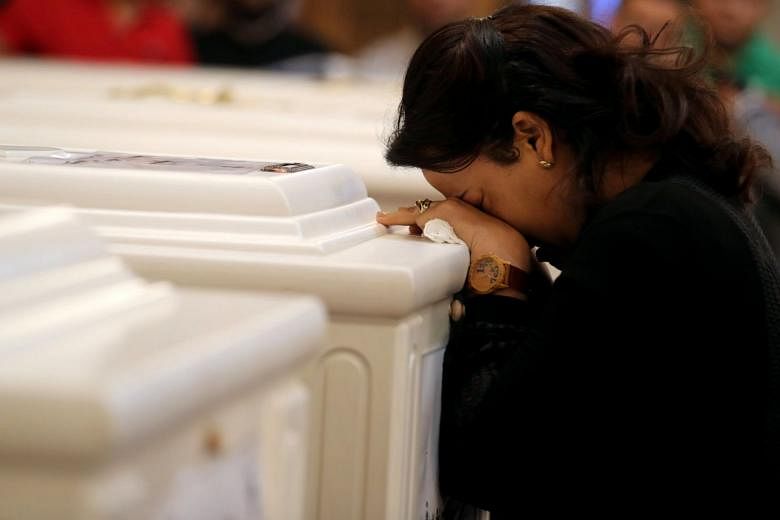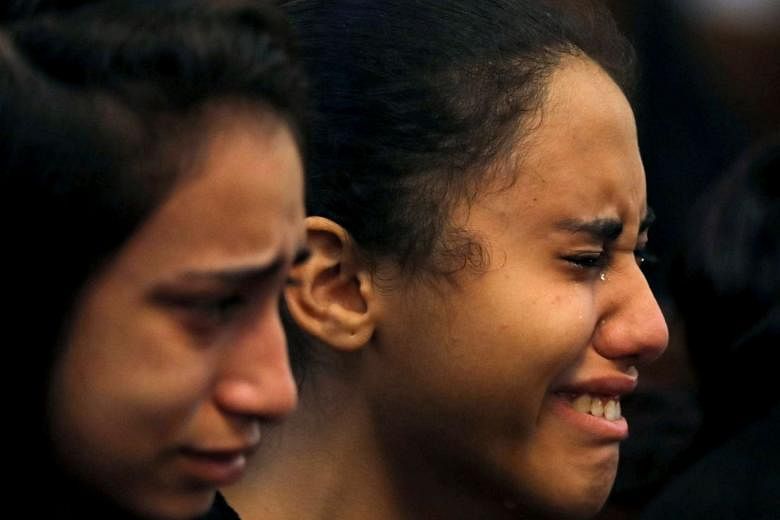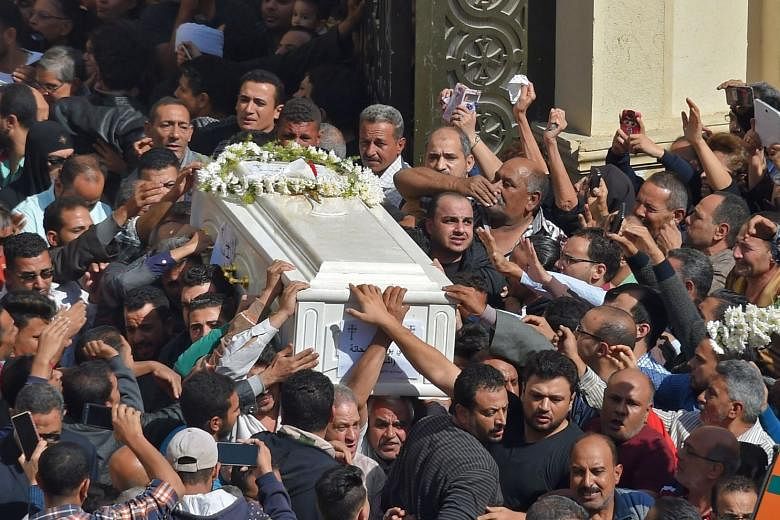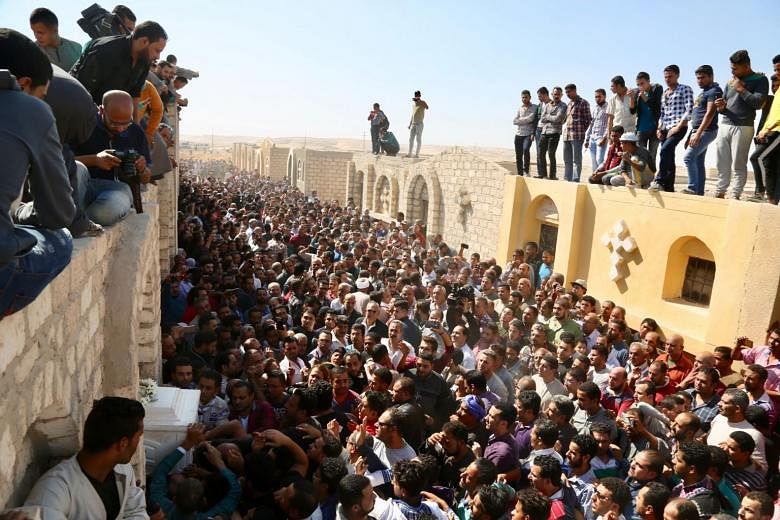CAIRO (AFP) - The Islamic State in Iraq and Syria group's (ISIS') latest deadly attack in Egypt shows it still has the ability to launch bloody strikes in the country despite pressure from a military offensive in the Sinai Peninsula.
Egypt's army has since February waged a major operation dubbed "Sinai 2018" aimed at neutralising militants in the desert region.
But after several months of calm, ISIS on Friday claimed an attack in central Egypt that killed six Coptic Christian pilgrims and one Anglican worshipper.
Gunmen opened fire on the devotees as they headed home on a bus from the Saint Samuel monastery in Minya province south of the Egyptian capital.
"At a time when ISIS is weakened in the Sinai, it is trying to launch operations elsewhere in Egypt," said Mustapha Kamel al-Sayyid, political science professor at Cairo University.
Copts, a Christian minority that make up 10 per cent of Egypt's 97 million people, have been repeatedly targeted by ISIS in recent years.
And Minya province, said Sayyed, provides "fertile ground" for militant operations.
The latest attack was preceded by a nearby assault in May 2017 also claimed by ISIS, when masked gunmen ordered Christians travelling to Saint Samuel to get off buses and recant their faith.
The pilgrims refused and were shot one by one, leaving 28 people dead.
"The Islamists are rooted in central and upper Egypt, particularly in Minya and Asyut - it is not difficult for ISIS to recruit in this region," said Sayyed.
The militants' goal is to show that "Egypt is not stable, even as (President Abdel Fattah al-Sisi) tries to give this impression," he added.
Another expert said it was clear ISIS is far from defeated in Egypt.
"This latest attack shows that the anti-ISIS campaign has not yet succeeded in Egypt, despite obvious efforts by the authorities to tackle it in different parts of the country," said HA Hellyer, senior non-resident fellow at the Atlantic Council and the Royal United Services institute in London.
Since December 2016, militant attacks in Egypt have left more than 100 Christians dead.
'MASSIVE PROBLEM'
Hellyer said the latest assault "shows that the wider issue of sectarianism being instrumentalised to support certain parts of radical extremist opposition continues to be a massive problem".
Since Egypt's military toppled Islamist President Mohamed Morsi in 2013, extremists have regularly attacked security forces, killing hundreds of police officers and soldiers.
The Egyptian Ansar Beit al-Maqdis group pledged allegiance to ISIS in 2014, gaining expertise and logistical support from the international militant group, which once controlled a self-styled "caliphate" in parts of Iraq and Syria.
The militants soon ramped up their attacks on civilians, planting a bomb on a Russian airliner carrying holidaymakers from a south Sinai resort in 2015, killing all 224 people on board.
In response to the uptick in attacks - and under the guise of tackling terrorism - Sisi has repressed all forms of Islamist opposition, crushing secular dissent along the way.
In late November 2017, Sisi gave his security forces three months to re-establish order in the Sinai after an attack against a mosque that killed more than 300 in the peninsula's north.
But nearly a year after that ultimatum - and nine months after the military offensive began - the militant insurgency in the Sinai remains alive.
Friday's attack in Minya province showed that ISIS can still hit hard outside the peninsula, despite retaining only a few hundred or so increasingly squeezed fighters in Egypt, according to experts.
The army said in October it had killed more than 450 militants since the start of the Sinai operation, while the regime says it has lost around 30 soldiers.
Press access to the areas affected by military operations is entirely cut off, making it hard to corroborate what is happening on the ground.
Rights groups regularly denounce what they call a failure by the state to provide for populations in the operational zone - accusations the authorities deny.





